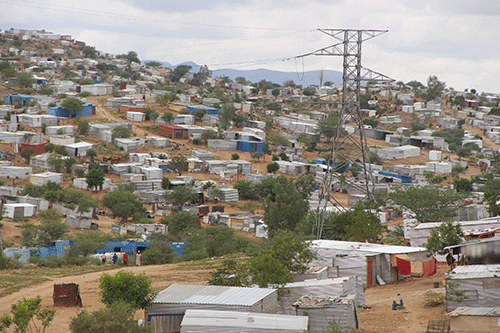Following the devastating socio-economic impact of Covid-19 and a stagnant economy, President Hage Geingob said the observation of the International Day for the Eradication of Poverty is an appropriate occasion to reflect on and renew government commitments in the fight against poverty.
The international day for the eradication of poverty is a global observance, celebrated each year on 17 October.
The day promotes dialogue and understanding between people living in poverty as well as their communities and society at large.
Geingob in a statement declared war on poverty and advocated for its eradication from society.
“In that vein, as part of our renewed efforts to fight against poverty, the old-age pension was doubled from 600 in 2016 to 1200, resulting in a better life for over 180 000 pensioners, with a multiplier effect running into hundreds of thousands more beneficiaries,” reads the statement.
It added the declaration of the war on poverty is a national strategic priority, aimed at uplifting the living standards of citizens of Namibia in line with the constitution of the country, National Development Plans, Harambee Prosperity Plans and the UN Sustainable Development Goals.
The President noted that due to its complexity, the solutions to address it should embrace a multi-disciplinary approach.
In contributing to the strategic priority area of ending hunger, Geingob said government has successfully rolled out food banks in all 14 regions, reaching over 11 000 families, including 50 000 food insecure Namibians.
“Furthermore, the food and nutrition security policy was developed with the focus of improving the implementation of food and nutrition security. The government has also recently launched the social protection policy, reaching 1 million Namibians, which includes grants for people with disabilities, old age pensions, vulnerable children and orphans, contributing to poverty reduction by strengthening social safety nets across the life cycle,” he said.
Furthermore, the World Bank, in its overview in January this year, indicated some 1.6 million Namibians live in poverty.
To overcome rampant poverty in Namibia, the World Bank advised the implementation of crucial structural policy reforms that it said will be a prerequisite to raise domestic growth potential.
According to the World Bank, these structural reforms are essential measures that ultimately change the fabric of an economy, including the institutional and regulatory framework in which businesses and people operate.
The structural reforms, said the World Bank, is designed to ensure the Namibian economy is fit and better able to realise its growth potential in a balanced way.
This advice from the international financial institution was offered after an analysis of the effects of Covid-19 on the domestic economy revealed shocking figures.
“With an increase of 200 000 in 2020, the number of poor people, measured by the upper middle-income poverty line (US$5.5/person/day in 2011 Purchasing Power Parity terms), has reached a record high of 1.6 million.
The pandemic mostly affected already vulnerable people, which threatens to widen social gaps further and increase already extremely high inequality,” reads the report.
Meanwhile, local economist Omu Kakujaha-Matundu advised Namibia to devise clear plans to fight poverty and not to rely on the Harambee Prosperity Plan as a recovery plan for the ailing economy that has been suffering for years.
– mndjavera@nepc.com.na


